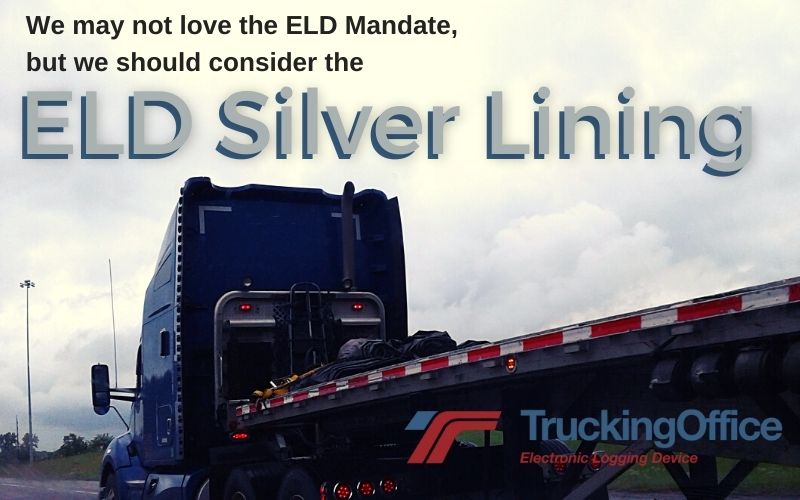Log book requirements have long been fixtures of the trucking industry.It’s important that carriers, drivers, and all trucking professionals are fully informed before the new requirements go into effect.
You probably saw the news announcement that there’s another attempt to delay the ELD mandate. A lot of Congressional representatives have signed on to the bill. That being said, we’re not expecting things to change. It appears that the ELD log book requirements are here to stay.
How Log Book Requirements Will Change
The ELDs will be used to electronically. They will record a driver’s Hours of Service and their Record of Duty Status in real time as they drive. It will change how that information must be kept. Under the Electronic Logging Device mandate, which will go into effect Dec. 18, all log books must be recorded electronically. We won’t have to fill out paper or other traditional methods logging methods.
The mandate also sets requirements for how an ELD functions and what features it must possess. All ELDs must be certified and registered with the Federal Motor Carrier Safety Administration.
According to the FMCSA,
“Carriers must evaluate and select ELDs, and ensure they are installed and drivers and administrative staff are trained to use them by the deadline.” Drivers must understand how to annotate, edit, and certify RODS on the devices. They must also know how to display and transfer data to safety officials as needed.
If caught out of compliance with the new log book requirements, drivers can face costly hours-of-service fines or other penalties.
The ELD doesn’t look good for truckers. I’ve read about JIT and other logistics nightmares that the new HOS restrictions will effect. The writers are grim about their look at the future of trucking.
Change is hard, but the mandate doesn’t have to hurt us.
There aren’t many drivers who like the new ELD mandate. But there are ways we can use it to our advantage.
- Detention payments. Our ELD will capture the times we spend waiting in a loading dock for the shipping crew to get to us. Detention pay is the penalty the shipper will pay for calling in a trucker for a pickup and making the trucker wait. There’s a difference between 10 minutes while the load gets wrapped up or stacked on a pallet, and waiting hours because the request called for the trucker to arrive too soon, or the shipping crew is disorganized. They may doctor their logs, but they can’t doctor ours. We’ll be able to bill for delays and get the detention payments we deserve.
- IFTA payments. The time will come when our IFTA filing will be completely based on our ELD. That should simplify our tax filings. Eventually. In the meantime, we can be confident that we’re paying the right amount.
- More accurate records. Too many truckers simply don’t have the data to know why they’re not making more money. Accurate records will be able to show what we’re doing and where we’re doing it on the road. Yes, I expect that we will see more problems because of drivers who are afraid that they won’t be able to make a scheduled delivery. But with better data, we can make more realistic delivery commitments. We’ll avoid shippers who expect us to break the law and the speed limits to get deliveries done in an unreasonable amount of time. Do they care what a speeding ticket will cost us?
Understanding the Change
We understand that change is hard. We know how frustrating it can be to feel. Like you are being saddled with restrictive hours of service requirements dreamed up by people who have never even been behind the wheel of a truck. We are the ones out on the road trying to work the amount of hours we need to work, make money and get our cargo delivered on time and we are the ones the new ELD mandate will impact.
What we need to do next is to figure out how to comply with the electronic logging device requirements. This is so you can avoid being fined or penalized in other ways that could harm your business.
The ELD Mandate
The ELD mandate was proposed as a means of giving truck drivers a way to more easily track, manage and share records of duty status data. Another reported reason for the ELD requirement is to create a safer work environment for drivers. This is done by ensuring compliance with hours of service regulations and reducing the chances of truckers driving while exhausted and getting into an accident. Many drivers fear the new ELD standards will harm them rather than help, but that it’s necessarily the case.
What do you think?
It may be hard to change your mind about the ELD. But consider the silver lining and you may find that the change has some benefits we otherwise would have never seen. It’s just living through the roll-out and the subsequent craziness for the next few weeks until we all get used to it.
Don’t Risk Noncompliance
Are you ready for the upcoming changes to log book requirements? Want an ELD solution that’s easy to install, easy to learn, and even easier on your pocketbook? Take a look at TruckingOffice’s integrated ELD and trucking software system. When you have a system that takes the actual miles per state from the ELD and uses them for your IFTA filing, you’ll be confident that you’re not paying more than you should. That’s only one benefit of having a complete computer system running your trucking business.
TruckingOffice trucking software system is available for a free trial for you to take it on the road and kick the tires. If you’re just getting started in the trucking industry, doesn’t it make sense to combine your invoicing, IFTA and IRP reports, dispatches, and ELD into one comprehensive package? We think so too. So sign up today for your free trial.







Recent Comments